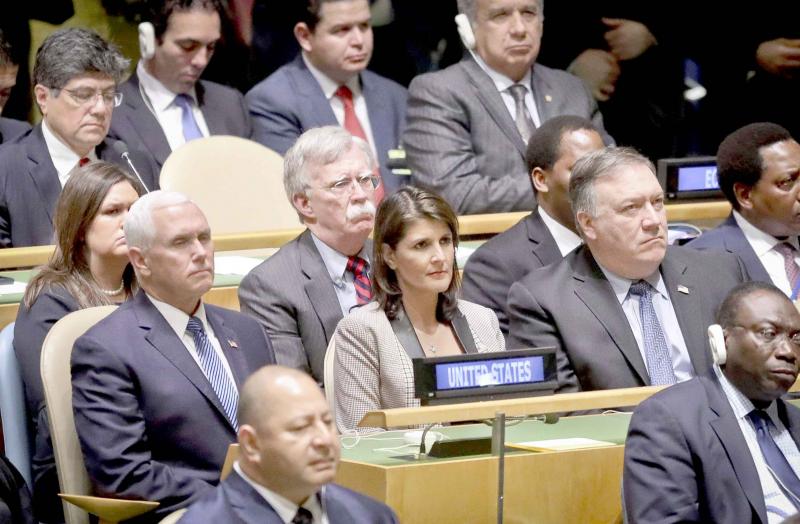In 1957, an Academy Award-winning French film-maker named Albert Lamorisse invented a strategy board game of high-stakes international diplomacy and conflict. It went on to be marketed as Risk and became one of the world’s most popular board games, a status it continues to enjoy today along with other table-top games such as The Settlers of Catan and Battleship.
It is no surprise Risk took off right after the second world war when international cooperation was needed to build a rules-based order to prevent another bloody conflict. The International Monetary Fund (IMF) and the World Bank were established within a dozen or so years of Risk appearing on the market.
Like UN diplomats, Risk players watch for likely alliances, plot strategic advantage, keep an eye on the balance of power and assess the merits of an offensive or defensive stance. Risk shares another key characteristic that has defined international organisations: It operates by rules. Without rules there would be no such pleasant pastime as a board game called Risk, nor would there be a United Nations.
In 2018, the United States’ game on international relations is a real-time Risk without rules. On September 25, US President Donald Trump declared at the UN General Assembly that his administration would reject attempts from other countries to impose constraints on the United States.
“We will not be governed by an international body that is unaccountable to our own citizens,” Trump said. “America is governed by Americans… we must protect our sovereignty and our cherished independence above all.”
The blunt rejection of international rules by the world’s richest, most militarily powerful country has profound implications. Until now, American presidents have mostly seen the United Nations and other international bodies as useful tools.
With one of the five vetoes at the UN Security Council, the United States consistently stymies international moves it doesn’t like, Israel-related issues being a case in point. The United States has used its veto power more than 40 times against draft Security Council resolutions pertaining to Israel.
The United States controls the largest share of votes at the IMF, giving it enormous influence over the IMF’s 189 members and any balance of payments problems they might face through misgovernance, corruption, incompetence or plain bad luck. The Trump administration’s harsh words about Pakistan’s attempt to secure another IMF loan illustrate the United States’ self-confidence regarding this particular international tool.
The World Bank, too, is part of the American toolkit. The United States is its largest shareholder and most influential member country. Add to that the quid pro quo reached between the Americans and Europeans when the World Bank and IMF were created — the United States would designate the World Bank president; the Europeans would get to pick the IMF’s managing director.
Finally, there is the World Trade Organisation (WTO), established in 1995, which regulates more than 98% of the trade flows among its 164 members. WTO rules, which require nations to keep trade barriers low for other members, help the United States precisely because the system allows it preferential access to global markets. This matters. In 2015, trade was nearly 30% of US GDP.
For more than 70 years, international organisations and the complex rules by which they ensure compliance or censure errant members have been a means for the United States to bludgeon other countries into submission or to shape the world order. Even when George W. Bush was planning to invade Iraq, an illegal act against a sovereign nation, he tried to get the United Nations on board. The Bush administration worked overtime to secure Security Council authorisation, albeit with the use of falsehoods.
Now the United States sees the international system as a constraint, an assault on its sovereignty. It has withdrawn from the Paris Climate Change accord, UNESCO, the UN Human Rights Council and the UN Security Council-backed Iran nuclear deal. It unilaterally decided Jerusalem is Israel’s capital and revoked funding for the UN agency that provides education and health care to Palestinian refugees. The United States has announced it will not participate in the UN Global Compact for Migration, the first global agreement on international migration, to be adopted in Morocco in December.
What America unconstrained might mean for the world is not clear but this much at least can be said: Without rules, the game is no longer worth playing. That is true for Risk, the board game, as much as for international affairs.
So, Trump may praise Saudi Arabia at the United Nations even as he hammers OPEC, of which the kingdom is de facto leader. What happens if the mood changes and OPEC’s largest oil exporter is unfairly blamed for failing to bring down prices to suit America’s gas-guzzling tastes?
Without a shared set of rules, we risk a return to a world at war.


